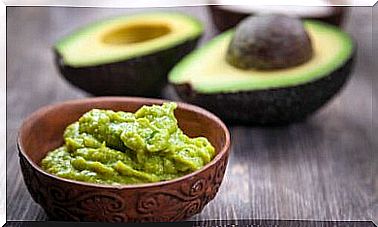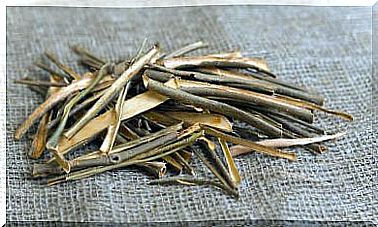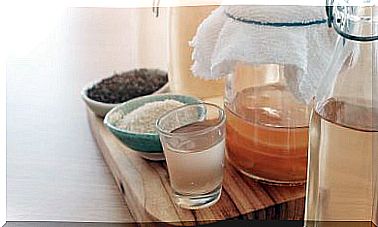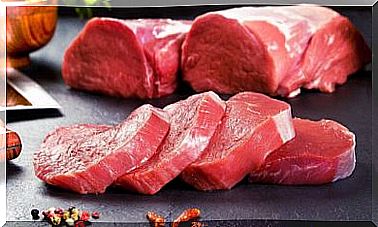What Are The Foods That Can Cause Joint Pain?
In case of frequent joint pain, it is necessary to lead healthy lifestyle habits, even when it comes to eating. For this, it is advisable to follow the recommendations of the treating physician.

Joint pain is often thought to result from overexertion or poor posture. However, these are not the only factors to consider. Food can also be one of the triggers for discomfort. This is because there are foods and edibles that can cause inflammation and pain.
Yes, food influences the appearance of joint pain
Research has shown that they could be the cause of joint pain and inflammation. This seems especially true in people with diseases such as:
- Gout.
- Arthritis.
- Osteoarthritis
- Herniated disc.
Avoiding these foods can dramatically reduce the most common joint pain symptoms : stiffness, swelling, and pain. It can also be helpful to regain the ability to perform certain activities that, until now, were very difficult for us. For example, something as simple as opening a jar or climbing a ladder will no longer be a problem.
It is true that it is a real challenge to avoid these foods, because they are very present in our daily diet … But it is worth it, since the relief it can bring to the joints will be truly wonderful.
In contrast, it is also advisable to include foods typical of the Mediterranean diet in the diet. For example, olive oil is indicated in these cases.
Do not forget that certain foods may be causing your problems, therefore, it will be better to avoid them.
To reduce joint pain, avoid certain foods
Pay close attention to the following foods, in fact it is possible that they could be causing joint problems without you knowing it.

Vegetables of the nightshade family
The entire nightshade family can be a real nightmare for you. Thus, in this category, the following foods are included:
- Chili peppers
- Yams.
- Potatoes.
- Peppers.
- Tomatoes.
- Eggplants.
- Peppers.
Apart from this, take into account certain dishes prepared with these foods, the reason is that they contain an alkaloid called solanine. This substance is responsible for accumulating calcium deposits in the tissues, therefore, try to avoid these vegetables for a month and you will see the results.
Foods with purines
Purine is a compound that can produce uric acid and accumulates it in the body, especially in the joints and tissues. For this reason, it causes a lot of pain and can lead to gout.
In case you suffer joint pain and inflammation you should stop consuming these foods:
- Meats: brains, liver, kidneys, veal, bacon, turkey.
- Fish and seafood: mussels, cod, mackerel, herring, anchovy, tuna, trout, sardines,
- Others: thick sauces, prepared broths, peas, spinach, mushrooms, asparagus, lima beans, chickpeas, beer.
Nuts and oils

First of all, avoid using any other cooking oil other than extra virgin olive oil. Unlike this, some people recommend using flaxseed. The reason is that it is a healthy oil and that, in addition, it contains omega 3 fatty acids. Thanks to this composition, they can be of help to reduce inflammation of the joints, thus producing great relief.
As for nuts, they also have oils that, although they are good for your health, can increase muscle and joint swelling. Therefore, it is recommended to consume them but in small quantities and no more than once a week.
Dairy products
To begin with, about dairy, it is convenient to know that people who suffer from arthritis or joint pain experience more acute symptoms when consuming dairy, thus, these symptoms are milder when they are removed from the daily diet.
Within this group are dairy products (milk, butter, margarine, cream, cream, yogurt, ice cream). The reason for this is found in an element called casein. If you want to get better quality calcium and protein, instead of consuming dairy, opt for these foods:
- Tofu
- Quinoa.
- Chard.
- Lentils.
- Spinach.
- Almonds
Flours
Refined wheat and rye flours contain gluten, apart from not being suitable for celiacs, they also cause gastrointestinal inflammation. They can ultimately cause swelling in the joints for those with arthritis and make symptoms worse. Instead of white flour, choose one that is whole grain.
Eggs

Eggs are a great source of protein, but they are not recommended in the case of osteoarthritis because they can cause pain and inflammation. This is because the yolk contains an element called arachidonic acid, which becomes inflammatory when ingested.
When you stop consuming eggs, you will notice less swelling and pain in your joints. Of course, to add a protein intake to the diet, preferably choose those of plant origin, such as legumes and cereals.
Citrus
Undoubtedly, some people with gout or osteoarthritis have experienced improvements in their joints by stopping consuming these fruits, whether raw or cooked.
- Limes
- Grapefruits.
- Lemons.
- Oranges
- Tangerines
In order for your body to have the necessary amount of vitamin C, you can consume:
- Kiwi.
- Strawberry.
- Broccoli.
- Papaya.
- Guava.
Caffeinated drinks (coffee and tea)

Caffeine aggravates inflammation in people with arthritis. Also, drinking several cups of tea a day reduces the amount of minerals and vitamins found in the body. The same goes for chocolate.
It is not advised to consume these foods immediately after lunch or dinner. Cola drinks also have a similar effect, just as they can also cause other health problems.
Foods that should be included in the diet
Based on the list above, it seems that we are not allowed to consume anything if we have joint pain. However, there are alternatives. Some of them are the following:
- Oats and whole grains.
- Drinks: green tea, homemade fruit juices.
- Fruits: grapes, bananas, apple, red berries, tomato.
- Vegetables: leek, onion, lettuce, zucchini, carrots.
A recommendation from the experts: adopt the Mediterranean diet
In the case of arthritis, experts recommend the so-called Mediterranean diet, which among its main components is olive oil.
Keep in mind that there are recommendations that apply to some cases and not others, so it is essential to consult your doctor and follow their instructions. The information provided here is merely indicative.









